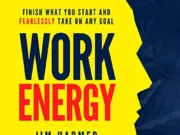When you’re older it’s normal for your testosterone to decrease, but nowadays more and more young men in their prime years experience low testosterone compared to previous generations.
While there are many possible reasons for said decline, our eating habits is certainly one of the big ones. Our diet has gone through massive changes over the last centuries and it’s not far-fetched to assume that maybe our bodies haven’t had the proper time to catch up, actually this whole idea gave rise to the Paleo movement which focusses on foods and habits that were common to our ancestors 10000s of years ago.
While we don’t plan on hunting for woolly mammoths soon, it might not be the worst idea to analyze the food we eat almost daily and maybe check for components that do our body more harm than good.
1. Soy
Ahh, yes, the mythical legume that give birth to the soy boy meme. Surely, the myth has to be at least somewhat rooted in reality?
While it seems that there’s certainly some research that makes the claim that soy negatively affects a man’s testosterone, there’s just as many papers claiming soy doesn’t affect our T-levels at all and at worst there’s some correlation that gets mistaken for causation.
The evil culprits in this case are the isoflavones, these are plant derived phytoestrogens which mimic female hormones such as estrogen or estradiol. Now males do need some estrogen in their bodies to survive, too much of it would have negative effects on our T-levels.
Once these isoflavones are metabolized, our gut starts producing equol- which has been reported to inhibit prostate growth, as well as decrease dihydrotestosterone (DHT) activity, which is an important androgen and source of testosterone.
Research has shown that soy ma indeed affect our estrogen levels, although the majority of these studies have been in a small amount of men (research is hard when you don’t have a corporate lobby backing it).
While the research has not been definitive and it would be dishonest to mention the positive effects of soy, especially for vegans and vegetarians (high in protein, ability to reduce risk of coronary heart disease, anti-carcinogenic ability), we do recommend to err on the side of caution and to not overindulge in soy or soy-based products.
Do also keep in mind that because soy is abundant and cheap to produce it’s also a very popular additive in many products.
2. Flax
Another testosterone killer you might want to avoid is soy’s evil twin, flax.
Compared to soy this one doen’t just increase estrogen, it also actively kills your testosterone.
The reason for this is that flaxseed is high in lignans, those are plant compounds that bind to the testosterone in your body and force it to be ejected from it.
Flax is also high in omega-3 fatty acids, which you might think is a good thing, especially if you’re a vegetarian and can’t get those from fatty fish or meat. The omega-3 variety in flax comes from ALA, alpha linoleic acid, which can’t be processed in the body as-is and needs to be further broken down by your digestive system. That may be be a problem, since only 5-15% of the population has the genetic ability to break them down properly. We don’t like those odds, especially since if you’re on the other side of them, ALA can wreak havoc to your gut.
Like that’s not bad enough, flax contains higher phytoestrogen amounts than soy on top of the estrogen killing lignans and nasty omega-3. One clinical studie has even shown testosterone levels decreasing up to 90%!!!!
Where soy got away with a proper warning label, our jury concluded that flax deserves a big NO. Avoid this if you’re a man. It’s the closest you can get to castration by eating.
3. Beer
This one will hit some people hard. For certain, we can give up soy and flax, but don’t take away our precious beer. NOOOOO NOT THE BEER.
Sorry to break the news to ya, but the hops in beer are a well-known source of phytoestrogens. It may even be the highest source of those.
Daily consumption of beer has a negative effect on your testosterone, sleep quality and your ability to build muscle.
German beer makers have known about the oestrogen effect of beer for a long time. Hop-pickers in the field often fell asleep on the job and the young female workers would often experience early menstrual periods.
The more hoppy the beer, the worse. Most of the phytoestrogen found in hops is the very potent estrogen estradiol, this causes a direct lowering of T-levels in the testes and increases SHBG levels, which attacks free testosterone in your blood. Estradiol also directly affects your ability to produce new testosterone.
The combination of alcohol and carbohydrates also increases fat storage in your body, which is the perfect place for fyto estrogens to go hiding.
We’re not going to take all of your precious golden drink away but proceed with caution. Do know that high beer consumption directly affects your T-levels in a negative way. Maybe consider switching to wine or whiskey instead.
4. Aspartame
Coming in last but not least, aspartame, the popular artifcial sweetener, appears to be another enemy of your testosterone.
Aspartame affects the Leydig and Sertoli cells leading to a decrease in your T-levels and oxidate stress. This lowers your sperm count and might actually damage your DNA.
Research has also shown aspartame to be potentially carcinogenic and increases the risk of lymphoma, leukemia, urinary tract tumors, and neurological tumors, even at a dose that is much less than the acceptable dose.
Maybe switch back to actual sugar instead or learn to drink black coffee and water like an actual adult.
Conclusion
It never hurts to analyze what we put into our mouths every day especially when we are super busy with our work and hobbies.
Some foods might actually hurt us on the bottom line and it won’t hurt us to avoid them and/or look for proper alternatives.
While we’ve started with the idea of searching for what foods negatively affect our testosterone I think it because more and more clear to everyone that food habits require a more hollistic approach, foods that hurt our T-levels probably hurt us in many other ways. I don’t think anyone would claim any of these foods were actually healthy way (except for soy maybe).
Getting your testosterone right should really be part of getting our whole body right so while it’s important to live life and indulge now and then we should also try to stay healthy so we don’t spend half of our lives in a wheelchair or munching drugs to stay alive.





































